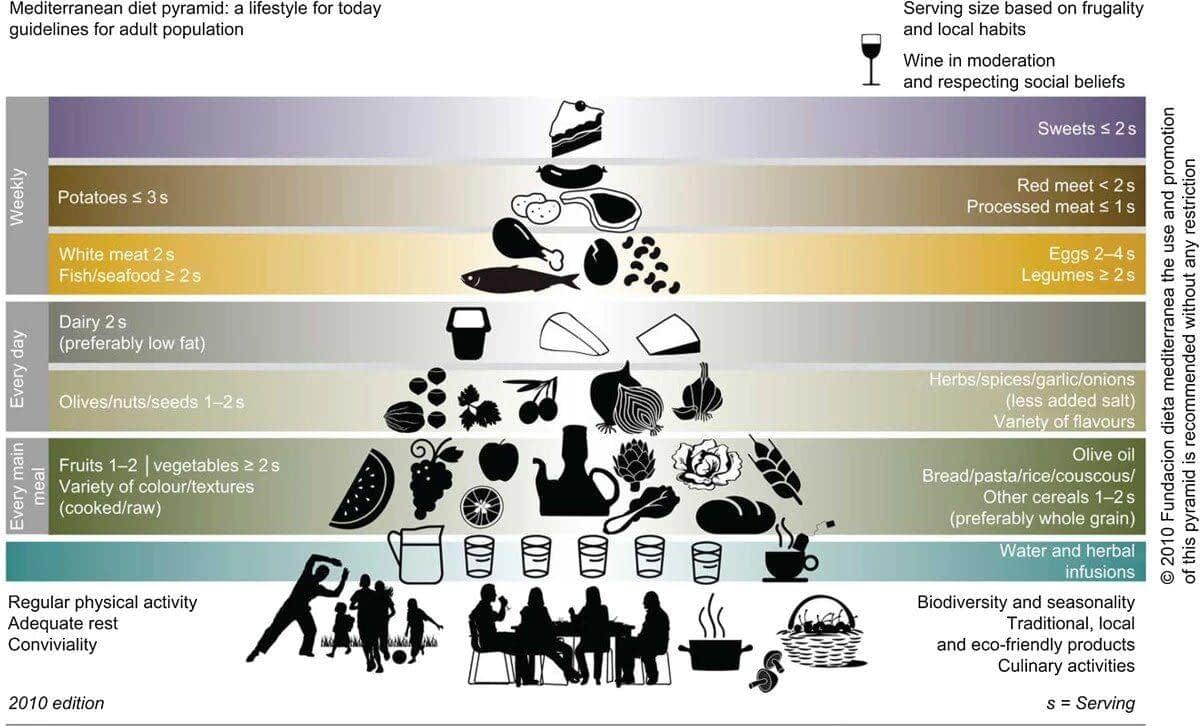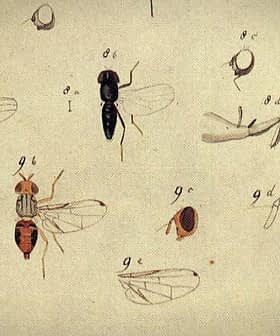How to Follow the Mediterranean Diet and Enjoy Its Health Benefits
The Mediterranean diet is famous for its health benefits, but many people are unsure of what it is or how to follow it.
 Filoti, Greece
Filoti, Greece  9.6K reads
9.6K readsThe Mediterranean diet is a traditional diet of olive-growing regions that prioritizes vegetables, whole grains, olive oil, and moderate amounts of dairy, fish, and poultry, while discouraging saturated fats and refined sugars. This diet is linked to lower rates of cardiovascular diseases and cancer, longer life expectancy, and overall improved diet quality, making it a simple yet effective way to improve health and prevent disease.
For years now, the Mediterranean diet has rightfully been publicly celebrated for its physical and mental health benefits, but what exactly is it, and how does it work?
In simple terms, the Mediterranean diet refers to the traditional diet of olive-growing regions before the introduction of fast food, large quantities of red meats and other harmful habits that arose from the globalization of the decades following World War II.
The most relevant characteristics of healthful diets are the overall patterns of foods consumed.
Mediterranean countries are historically among the healthiest countries in the world, recording relatively low rates of cardiovascular diseases and cancer, as well as longer life expectancy.
The Spain-based Mediterranean Diet Foundation, one of the most influential organizations dedicated to researching and promoting the Mediterranean diet, defines the diet as a way of life. In the foundation’s view, lifestyle and values form a vital part that can not be separated from the whole.
See Also:Olive Oil BasicsThis is reflected in its Mediterranean diet pyramid. Unlike more familiar food pyramids, the base is built from a combination of exercise, rest, socializing and cooking on the physical front, and a commitment to sustainable, local, seasonal, and eco-friendly food choices on the value front.
As the president of the foundation, Francisco Martinez Arroyo, explains, “the Mediterranean diet is not just food, but a way of understanding the environment, of relating to each other, of enjoying local and seasonal consumption, and continuing to transmit our history and cultural heritage.”
The next foundational level of the pyramid is simply water, either on its own or in the form of herbal infusions. As with most variations of the Mediterranean diet, the consumption of both carbonated and caffeinated drinks is actively discouraged. The European Union-funded MedDiet project recommends drinking at least 1.5 to two liters of water every day.

Photo: Mediterranean Diet Foundation
Next in the pyramid come those foods that should be used to put together every main meal. All variations on the Mediterranean diet prioritize vegetables here, with two or more servings per meal, and at least one being raw.
Choosing a variety of different colors and textures increases the diversity of antioxidants and vitamin and mineral combinations. This is a technique that institutions such as the American Institute for Cancer Research, the American Heart Association, and the United States Department of Agriculture Food and Nutrition Service have referred to as “eating the rainbow.”
After vegetables come fruit and cereals. Although all cereals provide necessary carbohydrates, whole grains are preferable because they retain many valuable nutrients and significantly more fiber. Studies in India, for example, have suggested that recent large increases in type 2 diabetes in the country are due in part to refined grains taking the place of more traditional unprocessed forms.
Also at this level is olive oil. Olive oil, particularly extra virgin olive oil (EVOO,) is perhaps the most well-known component of the Mediterranean diet. The total amount of lipids (fats and oils) in these types of diets is often off-putting to people used to following North American or Northern European nutritional guides.
The lipids from olive oil are monounsaturated, however. The discovery that monounsaturated fat could be beneficial came from the famous Seven Countries Study of the 1960s.
See Also:Health NewsIt revealed that people in Greece and other parts of the Mediterranean enjoyed a low rate of heart disease despite a high-fat diet. The main fat in their diet, though, was not the saturated animal fat common in countries with higher rates of heart disease, but olive oil. extra virgin olive oil additionally contains higher concentrations of various compounds such as polyphenols.
At the everyday level of the pyramid come olives, nuts and seeds, primarily for snacking or as side dishes, which introduce extra sources of proteins, vitamins, minerals and fiber; and twice-daily servings of low-fat dairy products.

Wild asparagus at a Greek market
While an excess of saturated fat has been associated with increased heart disease, small amounts are necessary as part of a balanced diet. In most forms of the Mediterranean diet, these are provided by a moderate intake of dairy products, which also provide vital sources of calcium.
Also at the everyday level are herbs, spices, onion and garlic. Not only do these add variety and enjoyment to both cooking and eating, but many have also been shown to have positive effects on the immune system, as well as inherent anti-bacterial, anti-viral and anti-fungal properties.
Finally, there are those foods that add additional sources of both plant and animal proteins throughout the week. Fish, seafood, legumes (beans, pulses, etc.,) eggs, and white meat are the most important part of this group.
A very small quantity of red and processed meat can be beneficial but should be kept to a minimum. This is also the case for potatoes, generally used as an ingredient in certain traditional recipes. Foods and drinks containing refined sugars are regarded as items saved for special occasions, and not for regular consumption.
Both the Mediterranean Diet Foundation and the MedDiet project recommend moderate portion sizes for all meals of the day, although this is much less important than overall diet quality according to Dariush Mozaffarian, a cardiologist and dean at Tufts University’s school of nutrition science and policy.
See Also:5 Things Everyone Should Know About Olive OilHe points out that “suboptimal diet quality is now the leading modifiable cause of death and disability in the world. In contrast to the erroneous notions that diet quantity – how much a person eats – or isolated single nutrients are most important, the most relevant characteristics of healthful diets are the overall patterns of foods consumed.”
In his view, the Mediterranean diet is one of the best ways to increase people’s overall diet quality, saying, “trials consistently demonstrate significant beneficial effects of Mediterranean-type diets and their components on cardiometabolic risk factors and disease endpoints.”
“Mediterranean diets also improve glycemic control and reduce the incidence of type 2 diabetes,” Mozaffarian concluded. “The key components of Mediterranean diets are also beneficial for weight loss in obese patients and for preventing long-term weight gain in non-obese populations.”
Following the Mediterranean diet, in whole or in part, is remarkably simple compared to the raft of health benefits that it can bring.
Share this article









